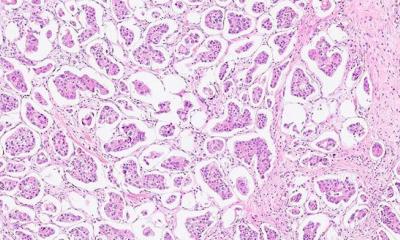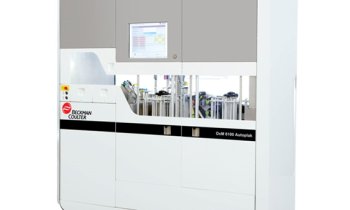Web advisories aid physicians
Monitoring and rapidly introducing new developments into everyday practice is an increasingly difficult task for many doctors. Additionally, patients are more informed due to media medical reports, which raise their expectations that doctors can offer a quick, reliable interpretation of the latest medical data.

Following most laboratory diagnostic tests, a doctor receives a report containing various measurements, which he/she uses to choose therapies. This offers diagnostics companies the potential to produce information to assist in the decision-making. Thus, in addition to developing increasingly sensitive diagnostic techniques, information technology (IT) will take a more central role in a firm’s business operations. This metamorphosis has already begun.
Heino von Prondzynski, Head of Roche Diagnostics, said: ‘Our knowledge of the human body, possible predisposition to illnesses, as well as therapies, is constantly increasing. As the world leader in diagnostics, it is our duty to collate this knowledge and deduce therapy recommendations from it to benefit doctors and their patients.’ Roche Diagnostics’ range of ‘Actionable Health Information’ services does just that, as in the case of calculating the risks of late-occurring diabetic complications and costs of treatment. Roche’s Mellibase system regularly supplies prognoses to doctor and patient, on paper or electronically, for use in doctor-patient discussions and to help diabetics adapt their lifestyles accordingly.
The company’s RealFlu also helps diagnose influenza and encourages patients with flu-like symptoms to seek medical advice quickly. From October to April, the website www.mellibase.de provides information about influenza outbreaks in individual German states, and doctors who see influenza developing in their regions can raise diagnosis accuracy up to 80%.
Rapid IT development accelerates the transition from simple data management to a decision-making tool. ‘Actionable Health Information’ systems enable more effective treatments as well as improved allocation of resources. In future, this will contribute to a healthcare strategy that integrates costs, quality of life and medical quality, and optimise their interaction for the benefit of all.
Dr Burkhard Ziebolz, Roche Diagnostics
01.07.2003
- data management (587)
- diabetes (319)
- economy (1046)
- laboratory (1111)
- medical technology (1553)
- microbiology (287)
- monitoring (376)
- therapy (845)











